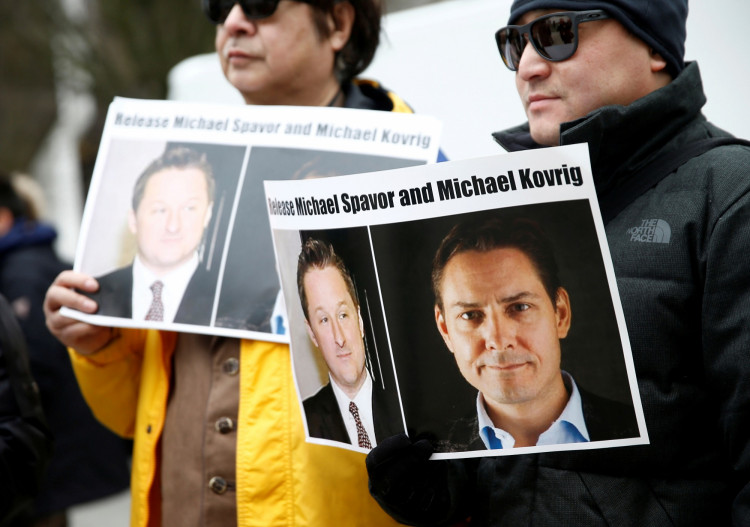It is two years Thursday that Canadian citizen Michael Kovrig has been in a China prison.
The former diplomat and fellow Canadian Michael Spavor were detained in December 2018 in retaliation for the arrest of Huawei Technologies Co. Ltd.'s chief financial officer Meng Wanzhou in Vancouver on a U.S. extradition warrant.
Family members said the two-year milestone is taking a toll on Kovrig and that 2020 has been particularly harsh - including a "very difficult" stretch from March to October when Kovrig heard nothing from the outside.
On Wednesday Canada's Foreign Minister Francois Champagne called the two men "incredible examples of perseverance and determination."
"These years have been stolen from Kovrig and Spavor, their families and loved ones," Champagne said in a statement, adding that their freedom is "an absolute priority for our government."
Kovrig and Spavor's family hopes the incoming Biden administration will help their cases.
Kovrig's consular visits were canceled in January as a result of the pandemic and resumed only in October. His only outside communication was a brief phone call in March to speak with his ailing father.
Meanwhile, a Canadian border official warned police not to use passcodes gathered by agents to access Huawei chief financial officer Meng Wanzhou's phones following her arrest by federal police two years ago, the official testified in court Wednesday.
Meng, 48, was arrested Dec. 1, 2018, at Vancouver International Airport on a warrant from the U.S. She is facing charges of bank fraud for allegedly misleading HSBC about Huawei's business dealings in Iran.
Prosecutors are trying to establish that Meng's arrest and the investigation by the border officials followed appropriate procedures.
Nicole Goodman, chief of passenger operations for the Canada Border Services Agency, told the court that she sought permission from her superiors to call Canada's federal police to let them know device passcodes were given in error, Reuters reported Thursday.
Goodman advised a Royal Canadian Mounted Police officer she spoke to that the RCMP should not use the passcodes to access information on the devices. "He had assured me that they wouldn't be doing that anyway because it's not their file," she said according to the report.
Meng's lawyers have argued that U.S. and Canadian authorities coordinated ahead of her arrest, using the extended investigative powers of the CBSA to interrogate her without a lawyer present before her arrest and passing the details of her electronic devices to U.S. officials in violation of her civil rights. They want Meng's extradition case to be dismissed based on abuses of process.
This week's witness testimony in the British Columbia Supreme Court comes will be the last before the extradition hearing resumes next year. U.S. prosecutors are discussing a deal with lawyers for Meng to resolve criminal charges against her.





